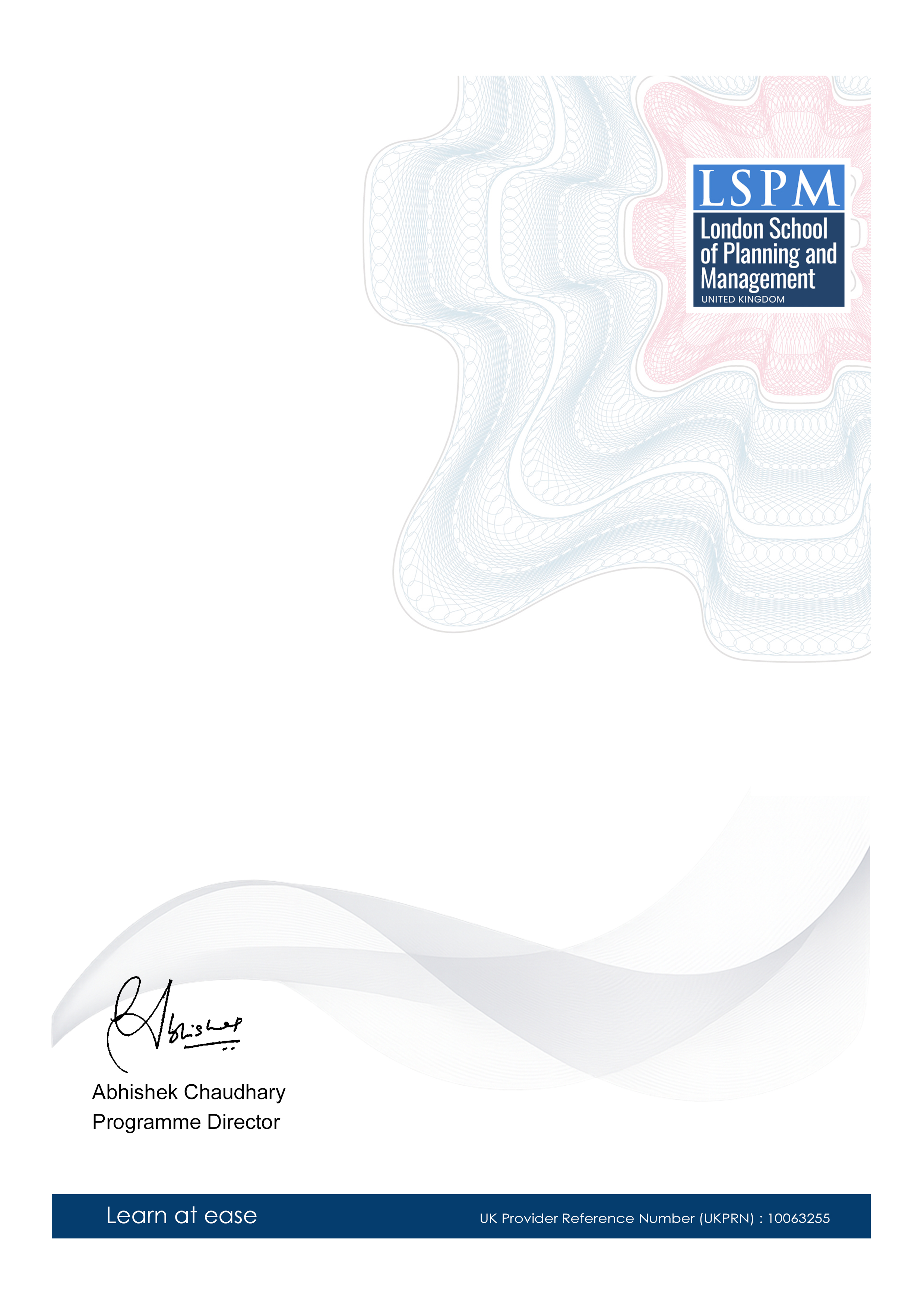Professional Certificate in Biomaterials for Humanitarian Aid
-- viewing nowThe Professional Certificate in Biomaterials for Humanitarian Aid is a comprehensive online program designed for individuals interested in learning about the use of biomaterials in humanitarian aid. The program provides an overview of the field, including the types of biomaterials used, their properties, and their applications in medical devices and prosthetics for those in need.
5,596+
Students enrolled
GBP £ 149
GBP £ 215
Save 44% with our special offer
About this course
100% online
Learn from anywhere
Shareable certificate
Add to your LinkedIn profile
2 months to complete
at 2-3 hours a week
Start anytime
No waiting period
Course details
• Biomaterials Science and Engineering
• Medical Device Design and Development
• Regulatory Affairs for Biomaterials and Medical Devices
• Quality Management in Biomaterials and Medical Devices
• Ethical Considerations in Biomaterials and Humanitarian Aid
Career path
Career Roles in Biomaterials for Humanitarian Aid
Biomaterials Engineer
Responsible for designing, developing, and testing biomaterials used in medical devices and implants for humanitarian aid. They work closely with researchers, doctors, and other professionals to ensure the safety and efficacy of these materials.
Biomaterials Scientist
Conducts research on the development and application of biomaterials for humanitarian aid. They analyze data, write reports, and collaborate with other scientists to advance the field of biomaterials engineering.
Biomaterials Technician
Assists in the production and quality control of biomaterials used in humanitarian aid. They perform laboratory tests, maintain equipment, and ensure compliance with safety regulations.
Biomaterials Consultant
Provides expert advice on the selection, use, and development of biomaterials for humanitarian aid. They work with government agencies, non-profit organizations, and private companies to improve the quality and effectiveness of biomaterials in medical devices and implants.
Biomaterials Regulatory Affairs Specialist
Ensures that biomaterials used in humanitarian aid comply with regulatory requirements. They prepare and submit documentation to regulatory agencies, conduct audits, and provide guidance on compliance issues.
Biomaterials Sales Representative
Promotes and sells biomaterials for use in humanitarian aid. They develop marketing strategies, identify potential customers, and provide technical support to clients.
Salary Range
The salary range for professionals in biomaterials for humanitarian aid varies depending on factors such as experience, education, and location. However, according to a recent survey conducted by the Royal Society of Biomaterials, the average salary for biomaterials engineers in the UK is £50,000 - £70,000 per year.
Job Market Trends
The demand for professionals in biomaterials for humanitarian aid is expected to grow significantly in the coming years due to advancements in medical technology and the increasing need for affordable and effective medical devices in developing countries. This growth is also driven by government initiatives and private investments in research and development.
Skill Demand
Professionals in biomaterials for humanitarian aid should possess strong technical skills in materials science, engineering, and biology. They should also have excellent communication and collaboration skills, as they often work in interdisciplinary teams. Knowledge of regulatory affairs and market trends is also essential for success in this field.
3D Pie Chart
Entry requirements
- Basic understanding of the subject matter
- Proficiency in English language
- Computer and internet access
- Basic computer skills
- Dedication to complete the course
No prior formal qualifications required. Course designed for accessibility.
Course status
This course provides practical knowledge and skills for professional development. It is:
- Not accredited by a recognized body
- Not regulated by an authorized institution
- Complementary to formal qualifications
You'll receive a certificate of completion upon successfully finishing the course.
Why people choose us for their career
Loading reviews...
Frequently Asked Questions
Course fee
- 3-4 hours per week
- Early certificate delivery
- Open enrollment - start anytime
- 2-3 hours per week
- Regular certificate delivery
- Open enrollment - start anytime
- Full course access
- Digital certificate
- Course materials
Get course information
Earn a career certificate

